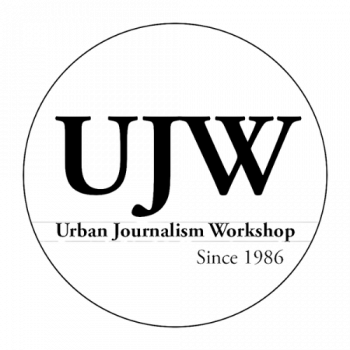By Melanie Aguilar
UJW Staff
FALLS CHURCH, Va.—As Fairfax County’s first charter school proposal prepares to go before the county’s school board this summer, some parents –and students–question whether the charter school is necessary.
The proposal is being led by Eric Welch, a high school teacher at J.E.B. Stuart High School in Falls Church, Va., who he believes there is an achievement gap issue in Fairfax County Public Schools not being addressed by the current educational offerings.
“There are a number of students who, either because they fail or because they are having to take remedial classes in math or English, stay in high school until 19, 20, 21 or don’t even graduate,” Welch said.
According to a report from the Virginia Department of Education, the county’s five-year graduation rate for the Class of 2010 was 92 percent overall, but differed when ethnicity and income were factored in. The county graduated 96 percent of its white students, 90 percent of its Black students, 77 percent of its Hispanic students, 78 percent of students who are English-language learners and 88 percent of students identified as economically disadvantaged.
“Those are not good stats,” said Stephanie Grisham, the Senior Communications Consultant for California-based Larson Communications, which specializes in national efforts to educate the public about charter schools. “You guys should be wanting more for your kids. A charter school could come in and offer something for children.”
Despite the graduation gap, the Fairfax school system–Virginia’s largest and the 11th largest in the nation– has a national reputation as academically strong, with its students scoring higher than the national average on the Scholastic Aptitude Test or SAT, a college entrance exam. Fairfax County’s students scored 1654 out of 2400 in 2010, compared with the national average score of 1,509, according to the Washington Examiner.
But these statistics are not enough for charter school proponents.
“I am really concerned for Fairfax County if we don’t try new things over the next 10 years,” said Welch, who is a board member for the proposed Fairfax Leadership Academy. “I think the world is changing and schools around the country are trying to adapt to that. I think Fairfax County needs to be trying to do that.”
As an alternative to the traditional educational methods of FCPS, the charter school proposes longer school days, an extended school year, and a career mentorship program during the school year.
Welch also wants to pair the International Baccalaureate program, which has college-level courses that can earn college credit with the Advancement Via Individual Determination or AVID program. This program is used at 10 Fairfax County high schools already, and is geared to “students who have the potential to succeed in a rigorous academic program if given both opportunity and support,” according to the county’s overview of the AVID program.
But a group of active parents at Falls Church High School, whose parent community was not included in the early proposal discussions with county officials, are worried about potential negative implications for their school if the charter school is approved later this summer.
After learning about the proposal, several parents started a group in October 2011 called UPROAR, United Parents for Renovating Our Academic Resource. According to their website, the group is dedicated to advocating for building renovations, improving academic offerings and opposing the Fairfax Leadership Academy.
The group is critical of the plans for FLA and has created an online petition with over 500 signatures. The school is not offering “anything dramatically different than what the kids at Falls Church (High School) are getting,” said Joan Daly, head of UPROAR. “We think it’s very similar and it’s attracting the same base of kids.”
The Fairfax Leadership Academy would open with grades 7 and 8 and then increase by a grade every year until it reaches 12th grade.
“When we learned about what the focus was and who the target student populations were, we were concerned,” Daly said.
She believes that potential FLA students represent “the bulk of the strong, motivated students at Falls Church” and she doesn’t want to “lose them.”
Welch disagrees, saying the school’s focus is instead on students who are struggling in the traditional middle and high school programs.
“I do feel that the folks at UPROAR and the people signing that petition are just very misinformed,” he said. “I don’t feel like they’re taking the time to understand how and why we are doing this and they’re just jumping immediately to the conclusion that ‘Oh my God, if there’s another school in our area, it’s gonna hurt our high school’.”
However, Welch said he would like the FLA to include students who need more help in core classes like math and English, and who would benefit from a smaller school structure.
“We’re working with social service organizations and we will work within the school district with counselors and families to make sure that they know that the type of student who should go to this school is not a student who is already succeeding at their regular school,” Welch said.
“If they are getting As and Bs at their regular school, then that is obviously working for them.”
Yet, UPROAR is opposed to the charter school in part because there is no guarantee that the students it is targeting would attend. The FLA cannot set requirements for students to apply because it would be part of the Fairfax County Public Schools system. Therefore, it would be open to whoever applied, as long as they live within the school’s attendance boundaries.
Some Falls Church High School students said they have similar concerns.
“We already have a small population, and because of our underpopulated facilities we have to fight for meager renovations,” said Katie Davidson, a junior at Falls Church High School.
“I have considered leaving Falls Church for an environment with better opportunities and resources, but every time, I have backed out because of my ‘family’ at Falls Church,” Davidson added.
Kelly Haynes and Penny Williams, also juniors at FCHS, said they spoke out against FLA’s proposal at a school board meeting in January and remain apprehensive about the consequences that the FLA could bring to their community.
“Falls Church High School is already here,” Haynes said. “We don’t need a new school within walking distance. It will bring less students to our already under-enrolled school.”
Geography is not students’ only concern. Others believe the academy would resemble a selective school, such as Thomas Jefferson High School for Science and Technology.
“All of the students I’ve talked to are against the charter school or indifferent to it just because they don’t know a lot about it,” said Williams. “I think the charter school will end up being like another T.J.”
Welch disagrees.
“We’re not at all a magnet school and we are not advertising this school for the best kids to get better; we’re advertising it for students who are struggling and not thriving in their conventional school,” he said.
Fairfax County Superintendent Jack D. Dale, took an impartial stance on the proposal when asked if a charter school would be a good or bad choice for students in FCPS.
“It depends on the charter,” he said in an e-mail interview. “If it is providing another, valuable program then perhaps yes. If not, then why approve?”


